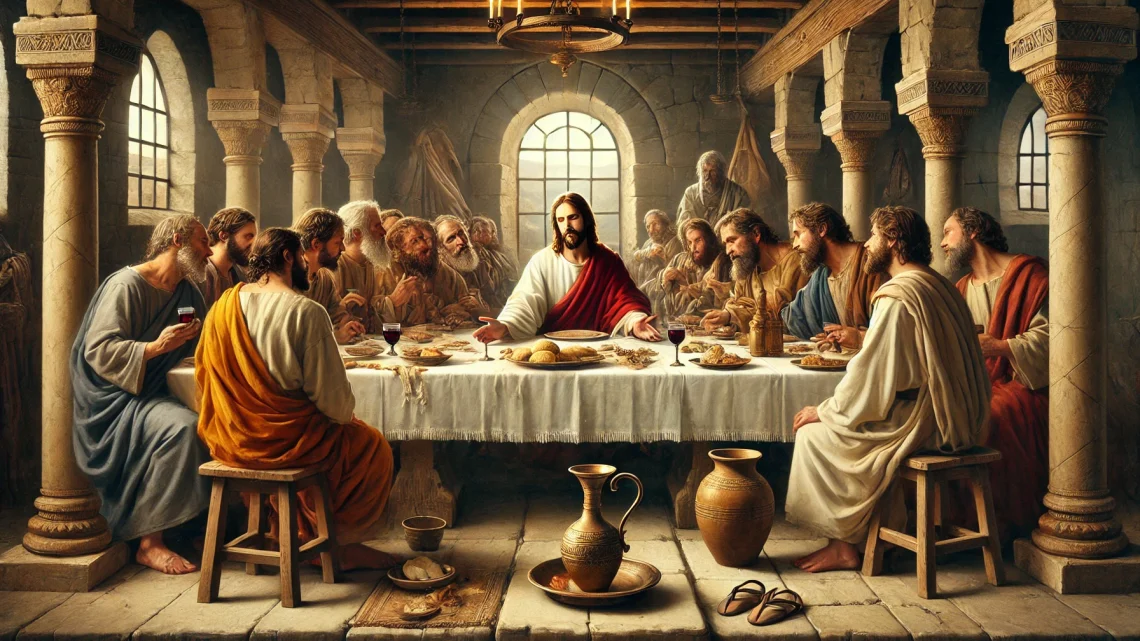The Significance of the Last Supper in the Hebrew Roots Movement

Introduction
The Last Supper is a pivotal event in the history of Yeshua’s followers, marking the final meal that Yeshua shared with his disciples before his crucifixion and resurrection. This meal holds great significance in the Hebrew Roots movement, as it represents the institution of the sacrament of the Passover Seder and provides crucial insights into the nature of Yeshua’s ministry. In this post, we will explore the context, key events, and theological implications of the Last Supper from a Hebrew Roots perspective.
Context of the Last Supper
According to the Gospels, the Last Supper took place on the night before Yeshua’s crucifixion, which is traditionally observed as the 14th day of the Hebrew month of Nisan (Matthew 26:17-19; Mark 14:12-16; Luke 22:7-13). During this time, Yeshua and his disciples gathered in an upper room in Jerusalem for a Passover meal (Matthew 26:18; Mark 14:12-16; Luke 22:7-13). The Gospels of Matthew, Mark, Luke, and John each provide their own unique perspectives on the events that transpired during the Last Supper.
The Institution of the Passover Seder (Matthew 26:26-29; Mark 14:22-25; Luke 22:17-20)
One of the most significant aspects of the Last Supper is the institution of the Passover Seder, also known as the Lord’s Supper or Holy Communion. During this meal, Yeshua took the unleavened bread and the wine, gave thanks, and said, “This is my body” and “This is my blood” (Matthew 26:26; Mark 14:22; Luke 22:19). He then distributed these elements to his disciples, instructing them to do the same in remembrance of him. This act symbolizes the sacrificial nature of Yeshua’s death and his promise of eternal life through faith in him (John 6:53-58).
The Washing of Feet (John 13:4-17)
Another important event that occurred during the Last Supper was when Yeshua washed the feet of his disciples. He demonstrated humility and servant leadership by performing this menial task, teaching them a valuable lesson about selflessness and love for one another (John 13:12-15). This act is commemorated during certain Jewish services, such as the Passover Seder, when a participant washes the hands of others as an example of servant leadership.
The Betrayal and Departure of Judas (Matthew 26:21-25; Mark 14:10-21; Luke 22:21-23)
Unfortunately, the Last Supper also marked the beginning of Judas Iscariot’s betrayal of Yeshua. After receiving the unleavened bread and wine during the Passover Seder portion of the meal, Judas left to arrange for Yeshua’s arrest (Matthew 26:26; Mark 14:17-21; Luke 22:20). The Gospels recount that Satan entered into Judas at this time, leading him to fulfill his predestined role as the one who would betray Yeshua (John 13:2, 27; 17:12).
Theological Implications
The Last Supper has had a profound impact on the Hebrew Roots movement. It serves as the foundation for the sacrament of the Passover Seder and provides valuable lessons on humility, love, and obedience to Jehovah’s will, providing a powerful example for followers of Yeshua to follow in their daily lives.
Conclusion
The Last Supper is an essential event in the history of Yeshua’s followers that carries deep theological significance. It serves as a foundation for the sacrament.

